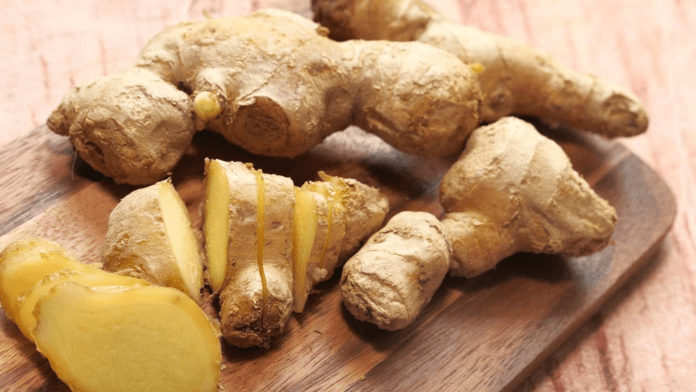Ginger is a versatile and flavorful root that has been used for centuries for both culinary and medicinal purposes. Its unique taste and aroma make it a popular ingredient in a wide variety of dishes, from Asian stir-fries to baked goods and beverages.
But ginger is more than just a tasty spice – it also has a range of potential health benefits, from easing nausea to reducing inflammation.
Health Benefits of ginger
One of the most well-known benefits of ginger is its ability to ease nausea and vomiting, making it a popular remedy for motion sickness, morning sickness during pregnancy, and nausea caused by chemotherapy.
Apart from that, ginger is also known for its anti-inflammatory effects. The active compounds in ginger, called gingerols and shogaols, have been shown to reduce inflammation in the body, which can help alleviate symptoms of conditions such as osteoarthritis and rheumatoid arthritis.
According to Ayurveda, ginger even helps in improving digestion by promoting the production of digestive juices and enzymes, which can help alleviate symptoms of indigestion and bloating. Some studies have also suggested that ginger may have potential as a natural pain reliever, as it has been shown to reduce muscle soreness and menstrual pain.
Ginger is also rich in antioxidants, which can help protect the body against cellular damage caused by free radicals. Some studies have even suggested that ginger may have anti-cancer properties, although more research is needed in this area.
How can it help the elderly?
As people age, they may face a variety of health problems that can impact their quality of life. Fortunately, this flavorful and versatile root offers numerous solutions to common problems faced by older adults.
Helps with Arthritis:
One of the most common issues faced by older adults is joint pain and inflammation. Arthritis and other conditions that cause joint pain and inflammation can be common in older adults. Ginger’s anti-inflammatory properties can help reduce pain and swelling, making it a potentially useful supplement for managing these conditions.
Helps with digestive issues:
Another common problem faced by older adults is digestive issues such as bloating, constipation, and indigestion. Ginger has been shown to promote the production of digestive juices and enzymes, which can help alleviate these symptoms and improve overall digestion.
In addition, as people age, they may become more susceptible to nausea and vomiting caused by medications or treatments. Ginger has been shown to be effective in reducing nausea and vomiting, making it a natural and safe remedy for these side effects.
Helps with cognitive functions:
Cognitive decline can also be a concern for older adults. Some studies have suggested that ginger may have neuroprotective properties and may help improve cognitive function, making it a potential natural remedy for maintaining brain health in older adults.
Ginger is a versatile and flavorful spice that may offer a range of potential health benefits for older adults. Incorporating ginger into a balanced and healthy diet may be a simple and delicious way to support overall health and well-being in later life.



